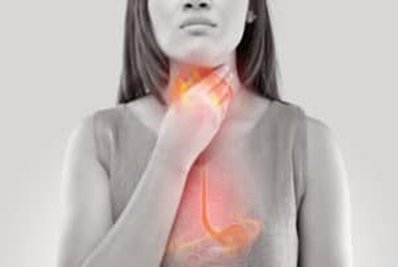Voice Disorder
Hoarseness, breathy, raspy, harsh, or weak voice; a decreased range
in pitch, volume and projection; shortness of breath; vocal fatigue, especially as the day wears on; coughing; chronic throat clearing
and loss of voice
Voice Disorder
Vocal cord abuse or excessive or inappropriate use of voice (e.g. shouting or speaking loudly, whispering, throat clearing and other activities that strain one’s vocal cords). Continued misuse of the voice can lead to laryngitis, nodules, polyps, cysts and vocal fold swelling, which may cause permanent damage.
allergies, sinus infections, neurological disorders, tobacco smoke, hormonal conditions, acid reflux, tumors and surgeries.
Prevention
- Avoiding the types of vocal cord strain
- Keeping the vocal folds moist by drinking plenty of water when speaking
- Avoid caffeine and alcohol
- Try humidifying the air
- Use amplification devices like microphones when
- Addressing large crowds
Treatment for Voice Disorders
Medical treatment (targeted at the underlying condition) and voice therapy. If suffering from vocal abuse, resting one’s voice is key to a speedy recovery. Be sure to stay hydrated by drinking lots of liquids. Medications may be prescribed to treat acid reflux and reduce inflammation caused by allergies or viruses. Surgery may be needed
to remove lesions and growths from the vocal cords.
Exercises that teach proper breathing and speech techniques and muscle
relaxation are often extremely helpful.
Laryngopharyngeal Reflux Or LPR
When stomach acid goes all the way through the esophagus, past the top sphincter, and into the throat,
it is known as laryngopharyngeal reflux (LPR).
What Are LPR Symptoms?
LPR reflux can cause any of the following symptoms:
- Bitter taste in the back of the throat
- Sensation of a lump stuck in throat
- Burning sensation in the throat
- Difficulty breathing

How Is Laryngopharyngeal Reflux Diagnosed?
physical examination, evaluation of symptoms and medical history,
and if needed, an endoscopy procedure.
What Is An Endoscopy?
During an endoscopy, doctors use a small cord to view the inside
of the esophagus and asses for damage due to LPR.
How Is Laryngopharyngeal
Reflux Treated?
LPR is an extension of GERD, so often the treatment will be similar to treating GERD.
eating smaller portions of food and drink more frequently throughout the day.
sitting upright or sleeping at a slightly vertical angle, especially right after sleeping.
Frequently Asked Questions (FAQ’s)
What are voice disorders, and why do they occur?
Voice disorders, or dysphonia, occur when your voice sounds different from usual—hoarse, breathy, strained, or weak. They can result from vocal misuse (like shouting or whispering), infections, allergies, acid reflux, neurological conditions, or growths on the vocal cords. Understanding the cause helps in choosing the right treatment to restore your voice.
What are the common symptoms of voice disorders?
Symptoms may include:
Hoarseness or breathiness
Weak or strained voice
Loss of vocal range or projection
Vocal fatigue, especially later in the day
Coughing or chronic throat clearing
Sensation of a lump in the throat
If these symptoms persist beyond two weeks, it’s advisable to consult an ENT specialist
How does your ENT team approach voice disorders differently?
Our specialists offer a comprehensive, personalized plan:
Detailed evaluation of your medical history and vocal habits
Advanced diagnostic tools, including endoscopy, to assess vocal cord function
Targeted treatment based on the underlying cause, whether it’s structural, neurological, or functional
Education on vocal hygiene and lifestyle adjustments to prevent recurrence
You receive care that not only treats the current issue but also protects your long-term vocal health.
What treatment options are available for voice disorders?
Treatment depends on the specific condition:
Voice Therapy: For conditions like vocal nodules, muscle tension dysphonia, or vocal fold paralysis.
Medications: To reduce inflammation or treat underlying conditions like acid reflux or allergies.
Injections: Botox injections for conditions like spasmodic dysphonia.
Surgical Interventions: To remove growths, correct structural issues, or address vocal cord paralysis.
Your ENT specialist will guide you to the safest, most effective option for your situation.
Can voice disorders affect children and adults differently?
Yes. Children may experience voice changes due to vocal misuse, infections, or developmental issues, while adults might face voice disorders related to aging, occupational strain, or medical conditions. Our team considers age-specific factors to ensure treatments are effective and recovery is smooth for every patient.
What are the potential complications if voice disorders are untreated?
Untreated voice disorders can lead to:
Chronic hoarseness or voice loss
Vocal fatigue affecting daily communication
Permanent damage to vocal cords
Social isolation or emotional distress due to communication difficulties
Prompt evaluation and proper treatment protect your health and prevent long-term issues.
How can you manage voice disorders at home effectively?
You can complement medical care with supportive strategies:
Stay hydrated and rest your voice regularly
Avoid whispering, smoking, and excessive throat clearing
Use a humidifier to keep the air moist
Practice proper breathing and speaking techniques
These measures help reduce discomfort and support quicker recovery.
When should you seek urgent medical care?
Seek immediate attention if you notice:
Sudden loss of voice or inability to speak
Severe throat pain or difficulty swallowing
Persistent hoarseness lasting more than two weeks
Breathing difficulties or a lump in the throat
Early intervention ensures complications are avoided and recovery is faster.
